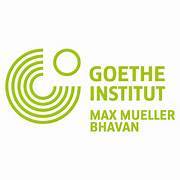Crisis of the Fourth Estate: Doing Journalism Today

Details
Nov 03 2025 to Nov 03 2025 6:30 p.m.
EVENT HAS ENDED
Where
Goethe-Institut / Max Mueller Bhavan Bangalore
716, Chinmaya Mission Hospital Road, First Stage, Indiranagar, Bengaluru 560038
Event Description
“With violence against journalists, highly concentrated media ownership, and political alignment, press freedom is in crisis in “the world’s largest democracy””, says Reporters without Borders which ranked India at 151 out of 180 countries in its annual Press Freedom Index.
In the last decade, Indian media has become increasingly partisan. In this context, the role of independent media and independent journalists becomes more important than ever. With the rise in disinformation and misinformation, the public trust in mainstream media is at an all-time low. Now, with the advent of Generative AI tools, journalism is once again facing an unprecedented challenge.
In this continuous ever-evolving media landscape, what does it mean to do journalism? How can journalists and media organisations not only survive butadapt and rise to contemporary challenges? How can journalists help rebuild public trust? This panel hopes to discuss these questions and more.
We are delighted to be joined by three stellar journalists – Dhanya Rajendran (The News Minute), Rohini Mohan (The Straits Times) and Vikhar Ahmed Sayeed (Frontline)-- whose award-winning work in both independent and traditional media speaks for themselves.
Join us!
We will also be joined by the four fellows of Journalism Connect, Indo-German Fellowship who will share their experience of being part of the fellowship as well as their ongoing work on a knowledge sharing handbook.
Date: November 3, 2025
Time: 6.30 pm
Venue: Goethe Auditorium
FREE ENTRY
Limited Seats. Registration Mandatory.
REGISTER HERE
This conversation is part of the Indo-German fellowship program “Journalism Connect - Rewiring Trust in Media”.
PANELLISTS
Dhanya Rajendran is an Indian journalist and the co-founder and editor-in-chief of The News Minute, a digital news website focussing on the news coverage of the southern states of India. She advocates against sensationalism in news media with cases related to 'sexual abuse' and has also been vocal about online & offline harassment faced by women journalists on the field. Dhanya is also a member of The Network for Women in Media, India. Recipient of the Chameli Devi Jain award for best woman journalist of India in 2022, she was also awarded Namma Bengaluru media person of the year in 2017.As of October 2025, she has been nominated for the Reporters without Borders (RSF) Impact Prize of the Year 2025 from India.
Vikhar Ahmed Sayeed is a Bangalore-based journalist, currently working as the Deputy Editor at Frontline news magazine. In his career spanning 15 years at this magazine devoted to long-form journalism, Sayeed has reported on diversified themes, including politics, communalism, gender, rural and urban deprivation, agriculture, caste, environment, literature, cinema, history and music. Sayeed has won several awards for his work. Prior to becoming a journalist, he studied South Asian history at the University of Oxford.
Rohini Mohan is a Bangalore-based journalist writing on human rights and politics. She has written for publications including The New York Times, Harper’s, Time, The Hindu, Economic Times, Foreign Policy, The Caravan and Huffington Post. She has won several journalism awards, including the 2020 Fetisov award for investigative reporting, and the Chameli Devi Jain Award for Outstanding Woman Media Person in 2019. She is the author of the award-winning The Seasons Of Trouble (2014), a non-fiction book on the ethnic conflict in Sri Lanka. Currently, she is working as the India correspondent for the Singapore-based The Straits Times.
Upcoming events in Goethe-Institut / Max Mueller Bhavan Bangalore
We don't have any upcoming events listed for this venue.
(Venue owners / event managers, to get your event listed, reach out to us.)